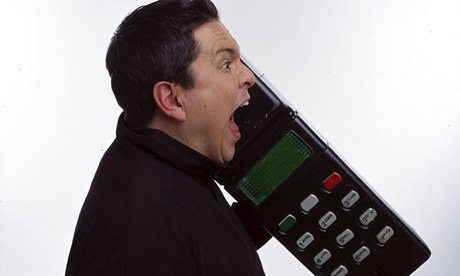
You know the Samsung whistle ringtone? You must do: five chirpy, chirrupping notes that are a bit like a wolf-whistle, but with no suggestion of sexual harassment.
The first time I heard it I thought there was someone messing about on the bus. Then I thought the whistler must be stalking me, because I was hearing it more and more: in the supermarket, the cafe, the park. Then a colleague's phone made the noise in the office, and the penny dropped. Finally last week my wife got a Samsung phone, so now I hear it at home.
First heard with the launch of the Samsung Galaxy S1 in 2010, the whistle ringtone is one of several variants of a tune named Over the Horizon, specially composed – perhaps "designed" is a better word – for Samsung. The South Korean company won't say exactly how many people have the Over the Horizon ringtone, but it does say it is the most popular. And Samsung is the world's most popular maker of smartphones – it sold 213m in 2012, about a third of the market. Over the Horizon has earned its place in the pantheon of ringtones we love to hate – wrongtones, if you will – alongside Nokia's signature theme, a descending arpeggio based on Tarrega's Chopin-inspired Gran Vals.
That one came into being thanks in part to Thomas Dolby, famed for 80s synthpop hits such as She Blinded Me With Science; in the 90s, Dolby helped invent the polyphonic ringtone for Nokia. At the height of its popularity, Gran Valse was being heard 1.8bn times per day and was immortalised by Dom Joly and his giant mobile phone on Trigger Happy TV. The ringtone signified newness for a while, before newness became naffness.
But the Samsung whistle ringtone is different. For a start, it's not polyphonic – it's deliberately naturalistic. It was composed, says Samsung, by its senior sound designer, Joongsam Yun. How did he do it? Not, it seems, just by improvising a jolly tune – or by finding a catchy sequence of notes that was out of copyright in the way Nokia did. First, Samsung did some market research: it says it canvassed 900 users in North America and Europe and came up with a list of positive words associated with its brand ("innovative", "friendly" and "trustworthy"). Joongsam was then asked to "develop these words into sounds".
Perhaps it does sound innovative, friendly and trustworthy. It sounds human (albeit an unusually perky, over-caffeinated human). Which, of course, might account for its success. So I'm no longer surprised to hear it on the train, in restaurants or when I'm doing the washing-up. But I do long for the day when its ubiquity makes it as socially unacceptable as Nokia's.
* This article was amended on 4 December 2013. An earlier version referred to the Nokia ringtone as being based on Chopin's Gran Valse, rather than Tarrega's Chopin-inspired Gran Vals.

